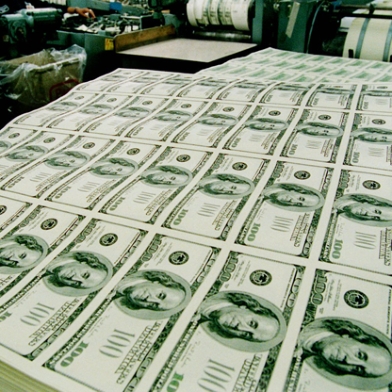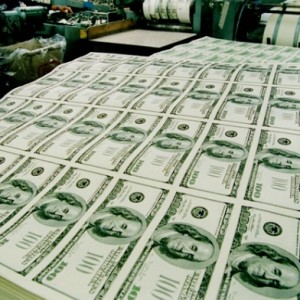Whenever there is a discussion on an economy of a country, some people always tend to think that why a country lags behind other countries in terms of finance when it is capable of printing money in its own currency and thus can become more and more rich by printing more money. The answer simply is a big “NO”. Just printing of money cannot bring prosperity to an economy as it will lead to arise of new consequences which will lead to further trouble for the economy of the country. The consequences may be of the form of huge inflation rise (often referred to as Hyper Inflation) or it may bring the uncertainty factor to the goods and their values. One of the prime examples of the above case is Zimbabwe. In the case of Zimbabwe, the government in the late 1990s failed to control the economy of the country and thus tried to control the situation by printing more and more money of its currency. This resulted in further sinking of the economy as the value of the currency of Zimbabwe (Zimbabwean dollar) , was left with no more value outside its own country resulting in no foreign investment possible in the country. This led to a gigantic increase in the inflation as the goods were bought from other countries having much more currency value as compared to the Zimbabwean dollar. So, the uncertainty in the price of goods had resulted in increase in the price of goods by multiples of 10s , 20s and continued further. The whole can be summed up by the fact that the Zimbabwean bank notes were distributed freely in Johannesburg and the people of Zimbabwe were allowed to use currencies of different countries in their own country. The whole effort was a failed one and an economy cannot prosper by just using these methods. Even Germany had faced a similar situation in the 1920s when there was an excess increase in the inflation and it tried to avoid that by abortive attempt of excess printing of money.
Few points that support the fact that an economy cannot prosper with just excess printing of money are:
I) Even if a country prints excess money , it cannot bring down the “Increase in Demand”. The increase in money increases the purchasing power of the people and this results in high increase in demand which further is the cause of high increase in production and its cost. The whole will result in the difference in the cost of a product as compared to other countries. This will result in increase in Inflation. And also the country may stand unique in the markets comprising of different currencies of different countries.
II) The foreign companies will no longer be interested in investing in that particular country as the cost of setting up and production would be very high.
III) There would be a big uncertainty in the price of goods as the price may be doubled, tripled or even may increase by ten times overnight. So, the market would be highly volatile.
IV) Even if the country puts a great effort in managing the economy after printing excess money and somehow gets successful in it for sometime, even after that they may face several problems as in the future if inflation occurs, the country will go straight out of the markets as the price of everything in that country would be automatically be higher as compared to that of any other country.
Hence, the whole topic can be summed up by the fact that if a country prints excess money to overcome any problem like inflation, most chances are that it may get backfired and hurt the economy even more.
Click here for government certification in Accounting, Banking & Finance





5 Comments. Leave new
Unique concept.Excellent work!Well done.
Impressive work. The inter-relatedness of the economies makes things difficult for the economy to function.
I completely agree with your point of view and expression.
This is a common misconception among common people.. They think why don’t we print more money and pay our debts in WORLD bank.. It is not possible..
Well explained article
Worth reading